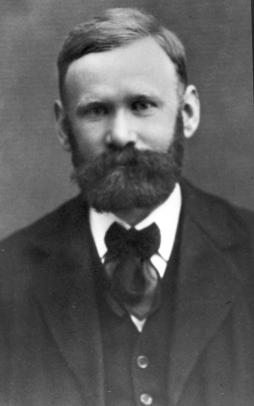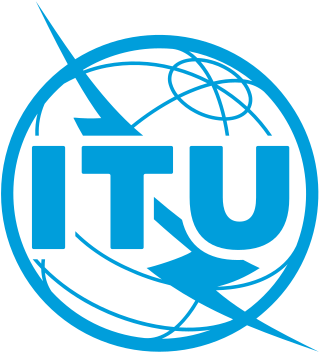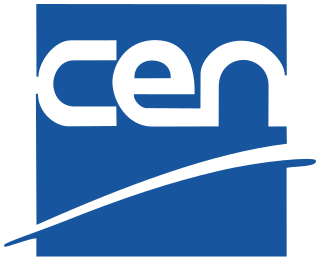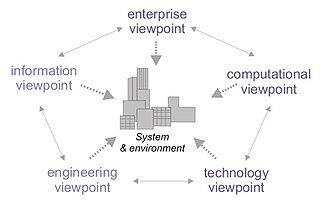
Agner Krarup Erlang was a Danish mathematician, statistician and engineer, who invented the fields of traffic engineering and queueing theory.

The International Telecommunication Union Telecommunication Standardization Sector (ITU-T) is one of the three Sectors (branches) of the International Telecommunication Union (ITU). It is responsible for coordinating standards for telecommunications and Information Communication Technology, such as X.509 for cybersecurity, Y.3172 and Y.3173 for machine learning, and H.264/MPEG-4 AVC for video compression, between its Member States, Private Sector Members, and Academia Members.

The International Telecommunication Union (ITU) is a specialized agency of the United Nations responsible for many matters related to information and communication technologies. It was established on 17 May 1865 as the International Telegraph Union, significantly predating the UN and making it the oldest UN agency. Doreen Bogdan-Martin is the Secretary-General of ITU, the first woman to serve as its head.
Quality of service (QoS) is the description or measurement of the overall performance of a service, such as a telephony or computer network, or a cloud computing service, particularly the performance seen by the users of the network. To quantitatively measure quality of service, several related aspects of the network service are often considered, such as packet loss, bit rate, throughput, transmission delay, availability, jitter, etc.
Standardization or standardisation is the process of implementing and developing technical standards based on the consensus of different parties that include firms, users, interest groups, standards organizations and governments. Standardization can help maximize;

The European Committee for Standardization is a public standards organization whose mission is to foster the economy of the European Single Market and the wider European continent in global trading, the welfare of European citizens and the environment by providing an efficient infrastructure to interested parties for the development, maintenance and distribution of coherent sets of standards and specifications.
Teletraffic engineering, telecommunications traffic engineering, or just traffic engineering when in context, is the application of transportation traffic engineering theory to telecommunications. Teletraffic engineers use their knowledge of statistics including queuing theory, the nature of traffic, their practical models, their measurements and simulations to make predictions and to plan telecommunication networks such as a telephone network or the Internet. These tools and knowledge help provide reliable service at lower cost.

The Space Generation Advisory Council (SGAC), in support of the United Nations Programme on Space Applications, is a non-governmental organization and professional network whose goal is to convey the perspectives of students and young space professionals to the United Nations (UN), space industry, space agencies, and academia.
Network calculus is "a set of mathematical results which give insights into man-made systems such as concurrent programs, digital circuits and communication networks." Network calculus gives a theoretical framework for analysing performance guarantees in computer networks. As traffic flows through a network it is subject to constraints imposed by the system components, for example:

Spectrum management is the process of regulating the use of radio frequencies to promote efficient use and gain a net social benefit. The term radio spectrum typically refers to the full frequency range from 1 Hz to 3000 GHz that may be used for wireless communication. Increasing demand for services such as mobile telephones and many others has required changes in the philosophy of spectrum management. Demand for wireless broadband has soared due to technological innovation, such as 3G and 4G mobile services, and the rapid expansion of wireless internet services.

Reference Model of Open Distributed Processing (RM-ODP) is a reference model in computer science, which provides a co-ordinating framework for the standardization of open distributed processing (ODP). It supports distribution, interworking, platform and technology independence, and portability, together with an enterprise architecture framework for the specification of ODP systems.
Vehicular ad hoc networks (VANETs) are created by applying the principles of mobile ad hoc networks (MANETs) – the spontaneous creation of a wireless network of mobile devices – to the domain of vehicles. VANETs were first mentioned and introduced in 2001 under "car-to-car ad-hoc mobile communication and networking" applications, where networks can be formed and information can be relayed among cars. It was shown that vehicle-to-vehicle and vehicle-to-roadside communications architectures will co-exist in VANETs to provide road safety, navigation, and other roadside services. VANETs are a key part of the intelligent transportation systems (ITS) framework. Sometimes, VANETs are referred as Intelligent Transportation Networks. They are understood as having evolved into a broader "Internet of vehicles". which itself is expected to ultimately evolve into an "Internet of autonomous vehicles".
Václav Edvard "Vic" Beneš is a Czech-American, a mathematician known for his contributions to the theory of stochastic processes, queueing theory and control theory, as well as the design of telecommunications switches.

The Defense Technical Information Center is the repository for research and engineering information for the United States Department of Defense (DoD). DTIC's services are available to DoD personnel, federal government personnel, federal contractors and selected academic institutions. The general public can access unclassified information through its public website.

The International Teletraffic Congress (ITC) is the first international conference in networking science and practice. It was created in 1955 by Arne Jensen to initially cater to the emerging need to understand and model traffic in telephone networks using stochastic methodologies, and to bring together researchers with these considerations as a common theme. Up through World War II, teletraffic research was done mainly by engineers and mathematicians working in telephone companies. Most of their work was published in local or company journals. In 1955, however, the field acquired a formal, international, institutional structure, with the organization of the first International Teletraffic Congress (ITC).
In queueing theory, a discipline within the mathematical theory of probability, a fluid queue is a mathematical model used to describe the fluid level in a reservoir subject to randomly determined periods of filling and emptying. The term dam theory was used in earlier literature for these models. The model has been used to approximate discrete models, model the spread of wildfires, in ruin theory and to model high speed data networks. The model applies the leaky bucket algorithm to a stochastic source.
Global Internet Usage is the number of people who use the Internet worldwide.

Houlin Zhao is a Chinese engineer who served as the Secretary-General of the International Telecommunication Union (ITU) from 2015 to 2022. He was first elected at the 2014 Plenipotentiary Conference in Busan, and re-elected at the 2018 Plenipotentiary Conference in Dubai. ITU is the specialized United Nations Agency for Information and Communication Technology (ICT), working on promotion, collaboration, and standardization.
Ji-Feng Zhang was born in Shandong, China. He is currently the vice-chair of the technical board of the International Federation of Automatic Control (IFAC), the vice-president of the Systems Engineering Society of China (SESC), the vice-president of the Chinese Association of Automation (CAA), the chair of the technical committee on Control Theory (CAA), and the editor-in-chief for both All About Systems and Control and the Journal of Systems Science and Mathematical Sciences.









